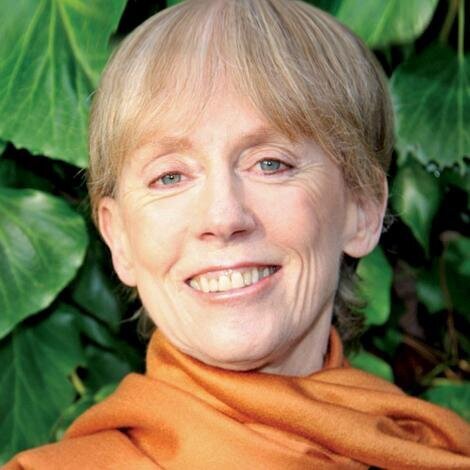Letting Go: Why Being Right isn't Always the best!
We all know that letting go isn’t so easy – we’re human! We know we would be a lot happier if we let go of our pride and resentment and decided that fighting with our loved ones isn’t worth it. But most times, it isn’t that simple. We all have an internal desire to be right, prove our point, and come out on top. This desire creates one of the biggest obstacles to forgiveness and apology.
Where It All Begins: The Ego's Need for Validation
So, how do we let go of this need to be right in order to bring more peace into our relationships and lives?
The first step towards dissolving that impulse is to understand where it’s coming from. In most cases, the need to be right comes from a deep, subconscious place. The ego is conditioned to believe that if we concede in an argument and forgive someone who has wronged us, our very existence is threatened. We feel that we don’t matter and aren’t worthy if we can’t prove that we are right.
At the root of all these ego-driven impulses is the fear of death. It seems crazy because we’re not actually facing death in most arguments when, ultimately, the ego’s job is to protect us. When it perceives any threat, the ego immediately leaps to our most extreme fear.
The Physical and Emotional Layers of Holding On
Luckily, our minds are incredibly powerful, and we can learn to override the ego’s conditioning. It starts by getting curious and questioning our impulses. Can you ask yourself, “Why do I feel the need to be right about this? Why does it matter if they don’t see my point of view? What do I gain from holding onto the need to be right? Who does it serve?”
Maybe most importantly, can you ask, “Who would I be if I let go of resentment and forgave this person who has wronged me?”
The answer is that you would be a happier, lighter, freer person if you shed the burden that resentment has placed on your shoulders. It feels so much better to forgive than to hold onto something, and forgiveness doesn’t make us weak or unworthy.
I’ve noticed that holding onto resentment towards someone can even be physically painful! If I harbor anger towards someone and refuse to forgive, I find myself stressed and uncomfortable. I feel pain and tension in my upper abdomen and sometimes get a headache. Many of us in today’s world are so used to feeling the pressure that we don’t even notice it and may not know to associate it with the resentment we are carrying.
Our bodies are not meant to hold onto emotional tension day after day. Our bodies are built to process, release, and let go so that we can return to our purest form as vessels of love. Think of a toddler who the harshness of life hasn’t yet conditioned. They are free in their body.
We all have the power to return to that state of purity.
It’s more important for our mental, physical, and emotional well-being to forgive than to be right. One of my teachers once explained it this way: to love ourselves unconditionally, we must love others unconditionally by finding compassion for their positive and negative traits.
Learning to let go from our children and our relationships
Think about the way that children forgive one another. Instead of ruminating on what’s happened for days on end, they usually cry it out or take a few moments alone to process. Once they’ve had the chance to feel their emotions fully, they’re able to go right back to playing as if nothing happened. They don’t harbor any negativity.
Children are like a clean slate. They haven’t yet been conditioned or wounded by the world, so they aren’t as easily triggered into anger and pain. On the other hand, adults have years of experience with stored negative emotions that haven’t been processed healthily. This is why when we’re on the receiving end of a hurtful comment or action, it brings an onslaught of painful emotion.
What if we stopped equating forgiveness with full resolution of those negative emotions?
I’ve learned to forgive my husband before we were able to solve the problem at hand. I’ve found that with love in your heart for yourself and the person you are in conflict with, it’s possible to forgive without an intellectual understanding of how a solution will be reached. The solution doesn’t have to matter so much. We can decide that love matters more.
Being comfortable with discomfort
The final piece of the puzzle in letting go of the ego’s need to be right is getting comfortable with discomfort and learning to sit with the feeling of another person being upset with you.
It can cause fear and anxiety when someone else is harboring negative emotions towards you. When I was a girl, I was terrified of anyone being mad at me, and I would do anything to avoid it. This led to me being artificially friendly or apologizing immediately out of fear. It’s taken me many years to get comfortable with the feeling of someone holding onto negative emotions toward me.
One of the first major steps in this healing process happened about a decade ago when I was at a meditation camp with my teacher Sally Kempton. I had been on the phone with my husband, and we were both exhausted and arguing. Mid-conversation, the phones went down, and back then, there was no cell service at this particular retreat center. There was no way for me to reconnect with him, so I was forced to sit in the discomfort of an unresolved argument.
On my way back to the meditation room, I ran into Sally and told her what had happened. She said, “Isn’t it so interesting to have to sit with discomfort?”
I would never have thought to describe the situation as “interesting.” Her words stuck with me, and for the next 12 hours, I had no choice but to sit in that uncertainty. When I finally reached my husband, we had both forgotten what we’d been arguing about and there wasn’t even a need to apologize with words. We had both forgiven each other without consciously intending to.
This experience taught me a powerful lesson: most times, disagreements are best dealt with later on because time diffuses tension. Time soothes the ego and returns us to the true Self. The Self that forgives and loves.
Letting go of the need to be right and allowing time for conflicts to resolve is like training a muscle, so practice this with a friend or spouse. The more you practice, the better you’ll be able to model it to your children.
It’s no small feat to teach your child that it’s okay to sit in discomfort, to give the ego time to settle and to trust that all will work out exactly as it is meant to. However, it is worth it because forgiveness is one of the keys to a peaceful life.
Forgiveness and unconditional love is key
We hear inspiring stories of great forgiveness, even in trauma situations, that teach us that forgiveness is always possible. Wise teachers like the Dalai Lama and Nelson Mandela didn’t hold onto their resentments. They chose to forgive their worst enemies. They decided that love was more important than the fears of the ego.
Robert Enright, a forgiveness researcher, explains forgiveness as a “willingness to abandon one’s right to resentment, negative judgment, and indifferent behavior toward one who unjustly hurt us while fostering the undeserved qualities of compassion, generosity, and even love toward him or her.”The basis for forgiveness is unconditional love. Where there is unconditional love, the power of fear, pain, resentment, and anger dissipates. If we all loved unconditionally in every situation, there would never be any need to apologize or forgive. Unconditional love takes great courage. The courage to let go of being right or the right to harbor resentment.
It starts now. Who would you be if you decided that you are more powerful than your ego and embodied the courageous act of unconditional love?
Other Blogs:







